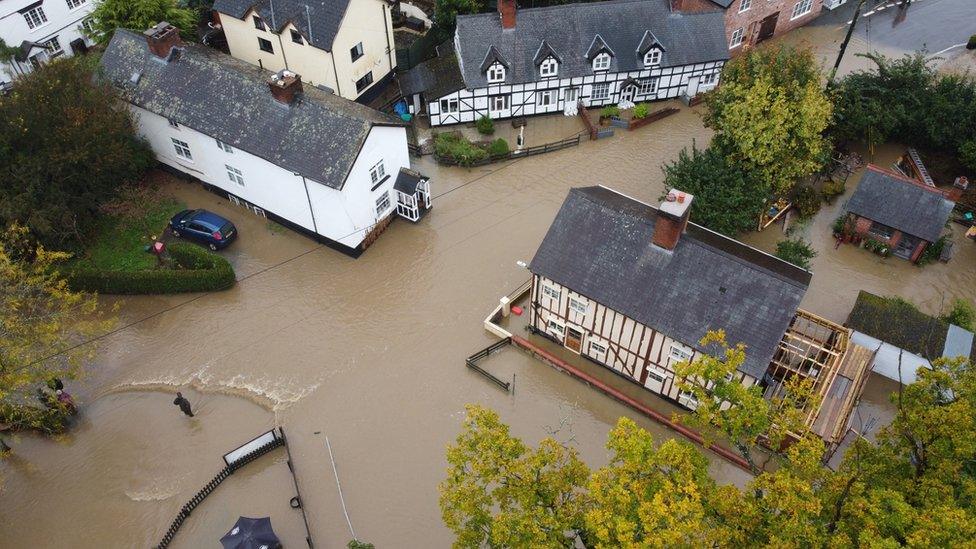Climate change: Lamb drownings sparked farmer's flood defence plan
- Published
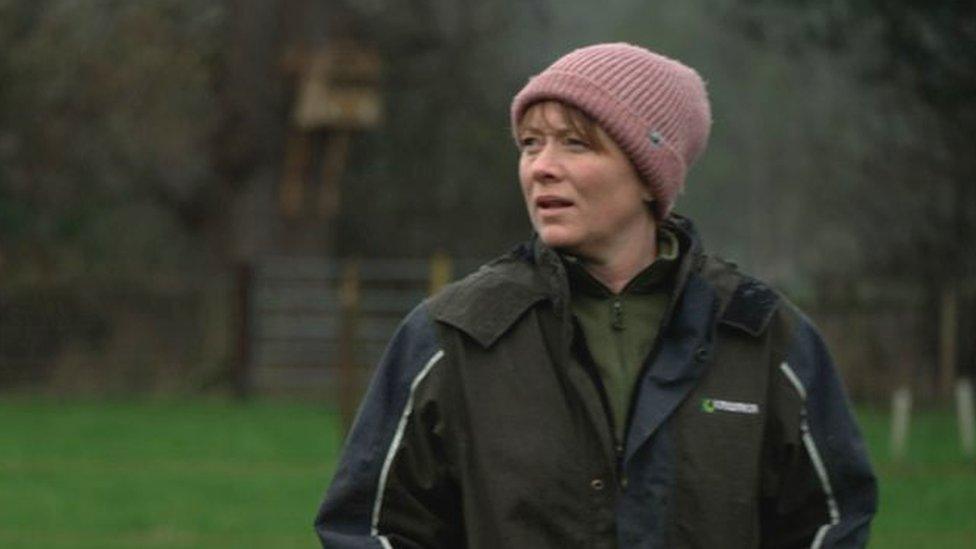
Sam Kenyon was spurred on to find nature-based solutions to flooding after the "awful" experience of watching her lambs drown
Watching on in horror as her lambs drowned, farmer Sam Kenyon knew she had to take action to adapt to flooding and the effects of climate change.
The 41-year-old had been farming near the River Elwy in Denbighshire for four years when severe storms hit in 2020.
After suffering three severe floods in the space of two months, Sam was forced to build her own nature-based flood defences
The Welsh government will spend £4.6m on natural solutions over two years.
Sam said after an "idyllic" start to farming on a flood plain she has been forced to adapt.
Glanllyn Farm is split across two sites on either side of the River Elwy near St Asaph.
Across 160 acres (647,497sq m) of woodland and meadow, Sam and her husband Alex farm sheep, goats, and in the summer, a herd of dairy cows.
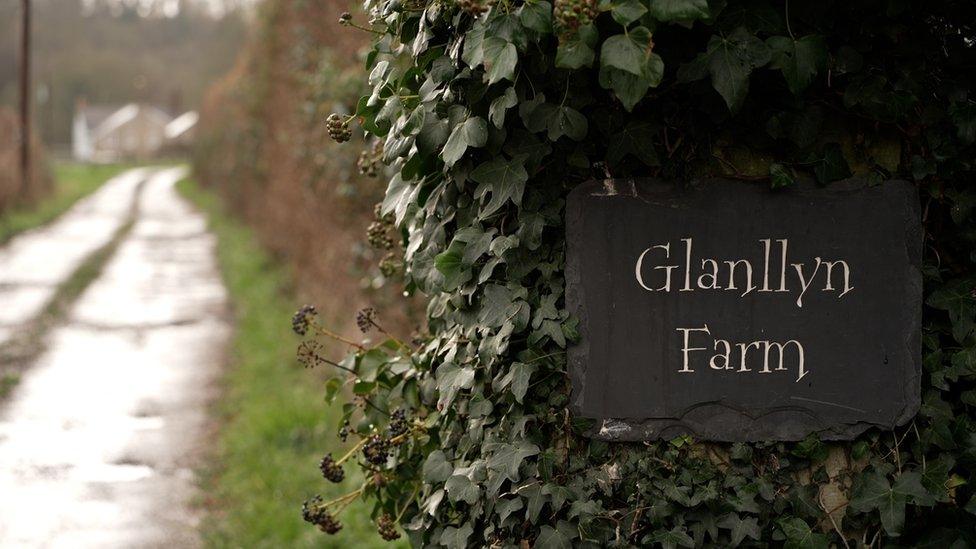
Sam Kenyon describes Glanllyn Farm, south of St Asaph in Denbighshire, as a "regenerative" farm
Taking huge pride in her land and livestock, Sam was devastated when she lost some lambs to the river in November 2019.
"It was awful. They went down to drink, and one knocked the next one in. It was like dominoes," she told BBC Wales Live.
"No animal deserves to go the way they did."
Shortly after, three serious storms hit Sam's farm in early 2020, causing floods that ate away at the edges of her fields.
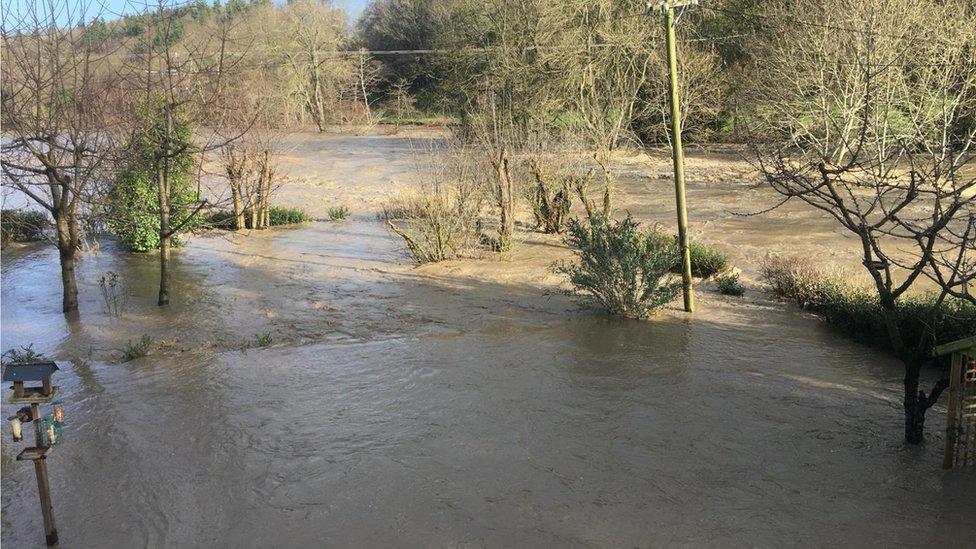
Sam's farm was hit by serious flooding in February 2020
The first hit on 9 February - a date Sam said she would never forget.
"The river broke its banks, flooding into the house within six hours," she recalled
After bailing water out of her home with a bread tin, Sam was relieved when the water finally receded.
However, she said seeing the damage the flood had caused to the farm was "disheartening".
The farmer lost between 10 and 14m (33 to 46ft) of land to floods over the course of four years, putting the viability of her livelihood at risk.
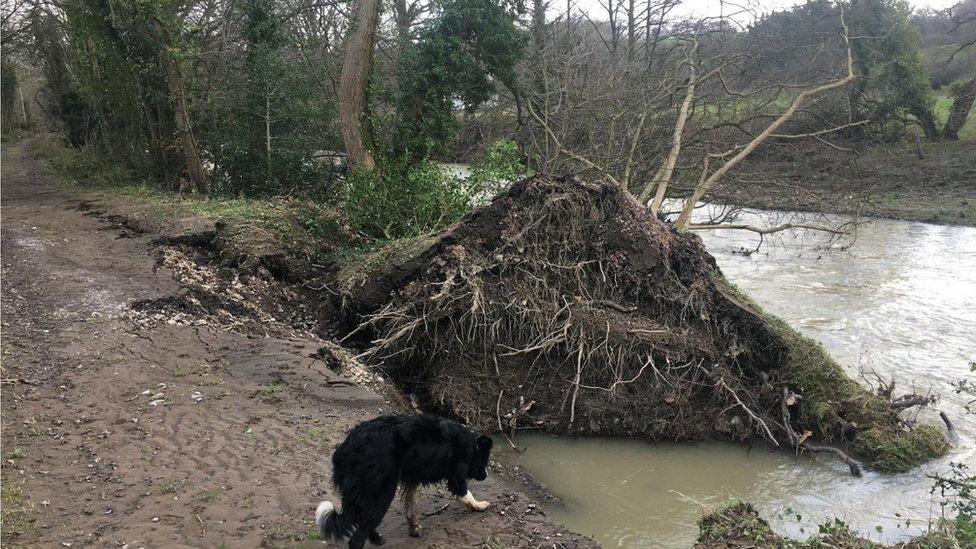
Sam has lost some of her land to flooding
Sam soon realised how much responsibility she had to keep her animals away from danger and protect the farmland from the river.
"I realised I can't fight nature. I can't fight climate change," she said. "I needed to build some natural resilience into the land."
But Sam quickly recognised there was no policy in place to help keep livestock safe and protect land when you are farming next to a fast-flowing river, forcing her to take matters into her own hands.
With advice from Natural Resources Wales and the Nature Friendly Farming Network (NFFN), Sam discovered a method to preserve the riverbanks.
She had the banks scraped back and created what she described as "tree graves" of willow tree trunk along the banks of the river to reduce erosion.
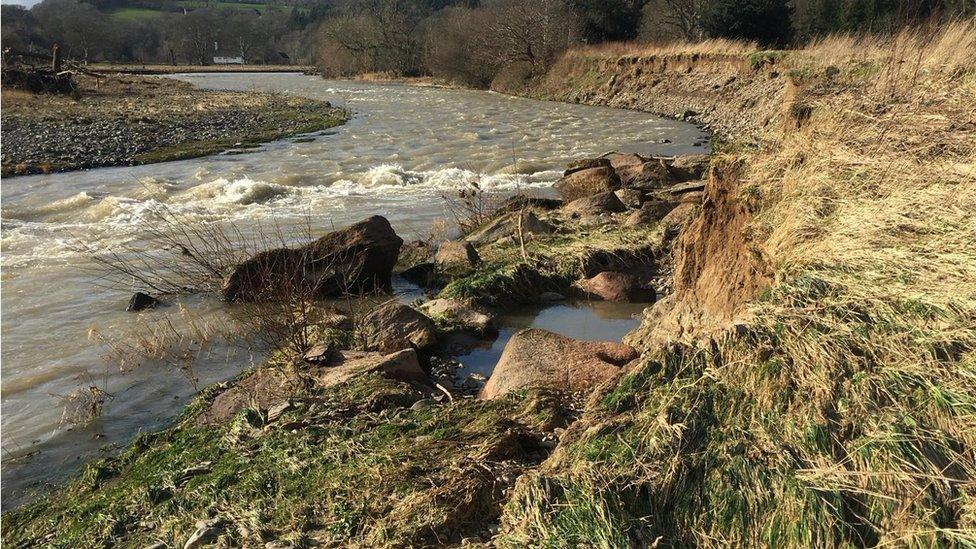
Sam buried old willow trunks underground along the river bank in an effort to reduce erosion
Sam has been impressed by the results so far: "It's just phenomenal how well it's taken off.
"It's put some greener armour into our land, and it has helped protect the field."
Sam has also stopped allowing her animals to graze near the river and started creating a water-storage area in one of her meadows that cannot be accessed in the winter.
This, she hopes, will provide natural flood management throughout the colder season and could give assistance to residents of the town who live downstream.
"I really hope it's helping people to know there is someone trying to hold a bit of water back, and hopefully policy can help us do more of this," she said.
Since she buried the willow trunks along the riverbank, she said she had discovered 20 different species of plant starting to grow there.
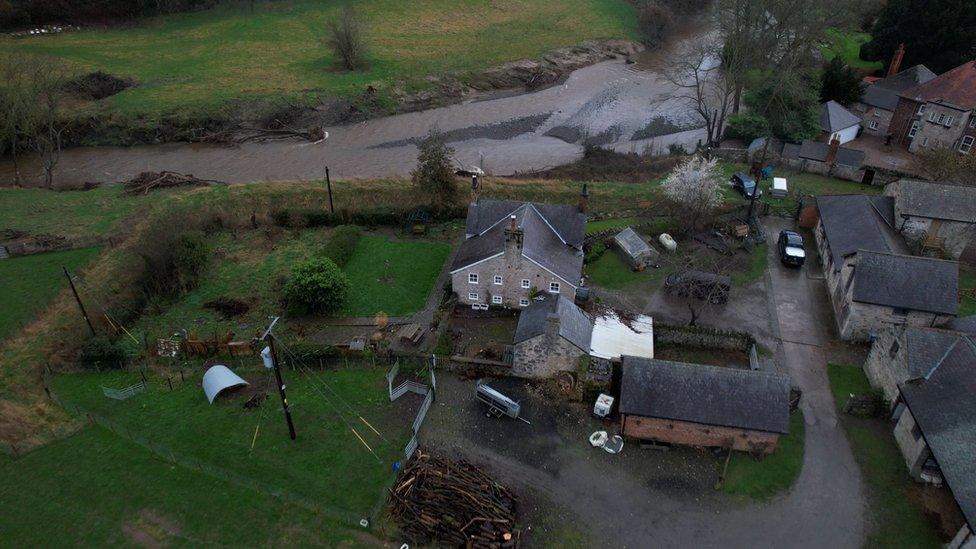
Glanllyn Farm sits on the banks of the fast-flowing River Elwy in Denbighshire
Sam said she was very determined to show nature-based solutions were practical and can benefit farmed landscapes and their biodiversity, especially in the face of climate change.
"I'm just so passionate to show that with the right kind of support and help, we can deliver solutions," she said.
She also hopes to encourage more conversation about such solutions among people in her industry.
"I think we need more knowledge transfer - more of us getting our heads together when it comes to solutions, because no one knows our farms better than us," she said.
The NFFN wants to highlight how farms can play a "key role" in addressing the effects of climate change.
"We need government schemes that reward farmers to take these actions, alongside the right training, advice and support for farmers to embrace them with confidence," said Phil Carson, head of policy at NFFN.

Sam says she is much happier to live on Glanllyn Farm after building her natural flood defences
Despite the hardships caused by the floods on Glanllyn Farm, Sam believes it is still a beautiful place to live and work.
"I'm much happier to be here [after creating the flood defences]," she said.
"It's still got everything it had to offer and now, in a way, it's got more."
The Welsh government said it was "committed" to nature-based flood defence schemes and was working with "farmers, landowners and third sector organisations".
"In October we announced a £4.6m two-year programme to reduce flood risk using nature-based solutions.
"This is in addition to our £3m natural flood management pilot project which was launched in 2020 and completed last year."
For more on this story watch BBC Wales Live on iPlayer.
Related topics
- Published28 February 2024

- Published26 January 2024
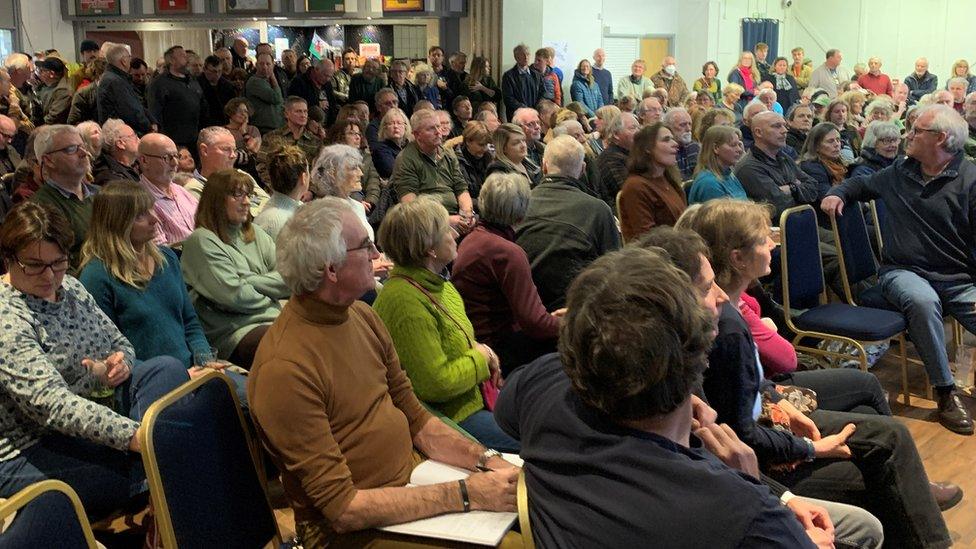
- Published16 November 2023
